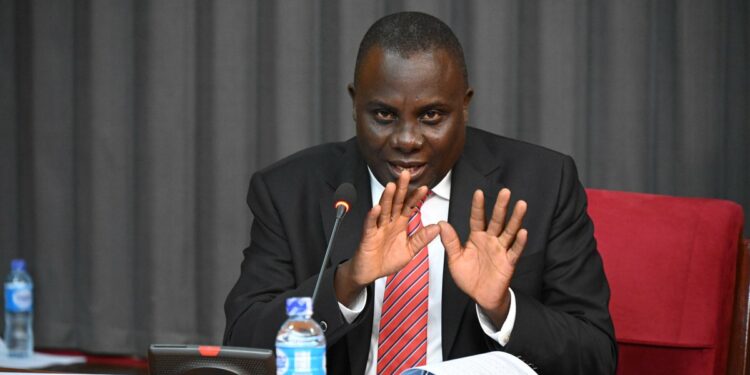The Public Accounts Committee (PAC) has called on the government to restructure its growing public debt after an alarming report by the Auditor General revealed that the country’s total debt had surged by 111.7% in just five years.
As of June 2023, Uganda’s debt stood at UGX97.499 trillion, a significant rise from UGX46 trillion in 2018/19.
PAC Chairperson Muwanga Kivumbi, presenting the committee’s report on the Auditor General’s findings during a plenary session, emphasized the urgency of addressing this escalating issue.
“The Committee recommends that the Government should consider restructuring debt to acquire cheaper financing and minimize debt obligations. We must reverse this trend of public debt growth, enforce fiscal budget discipline, and promptly service a portion of domestic obligations, including interests,” Kivumbi stated.
The Auditor General’s report highlighted that as of June 2023, Uganda’s domestic debt stock was UGX44.673 trillion, while external debt stood at UGX52.826 trillion. This marked an increase of UGX9.329 trillion (10.74%) compared to June 2022. Much of the rise was attributed to higher domestic borrowing, underscoring the government’s reliance on the domestic market to finance budget shortfalls.
Kivumbi expressed concern about the ballooning cost of servicing this debt. “There is an urgent concern about the cost of debt service payments, which has continued to increase, particularly commitment fees and management charges on loans. The Auditor General noted that UGX112 billion was spent on commitment fees alone by June 2023—far above the approved budget. This is too high by any stretch of the imagination,” he added.
Kivumbi also criticized the frequent supplementary budgets and the government’s “unquenchable appetite for borrowing,” warning that the trend, if unchecked, could push Uganda into a deeper debt crisis.
Calls for Fiscal Discipline
The committee’s report attributed the debt surge to persistent budget deficits, which have been worsened by excessive government spending, debt rollovers, bond switches, and private placements. Additionally, the depreciation of the Ugandan Shilling against major currencies has contributed to foreign exchange losses, further compounding the country’s debt challenges.
“There has been a consistent increase in total debt over the past five years, from UGX46 trillion in 2018/19 to UGX97.499 trillion as of June 2023. This rise is driven by multiple factors, including budget deficits, debt rollovers, and foreign exchange losses,” Kivumbi noted.
The committee also urged the government to prioritize debt servicing to avoid penalties imposed by the Bank of Uganda (BoU). The report revealed that the BoU had fined the government UGX405 billion for failing to meet its debt obligations in the 2022/23 fiscal year.
This came after the Auditor General disclosed that the BoU charged UGX16.657 billion in bank fees and further penalized the government for missed debt payments.
“The root cause of these high penalty fees is the government’s failure to honour its obligations. We recommend that the government honour its commitments to the BoU to avoid unnecessary penalties and enable the central bank to fulfil its core mandate without pushing the country into unsustainable debt,” Kivumbi urged.
As Uganda grapples with its expanding debt burden, the PAC’s recommendations signal a pressing need for fiscal discipline and strategic debt management. The call for restructuring reflects a growing recognition that the current path may lead to even higher costs for the country’s economy.
Do you have a story in your community or an opinion to share with us: Email us at editorial@watchdoguganda.com










